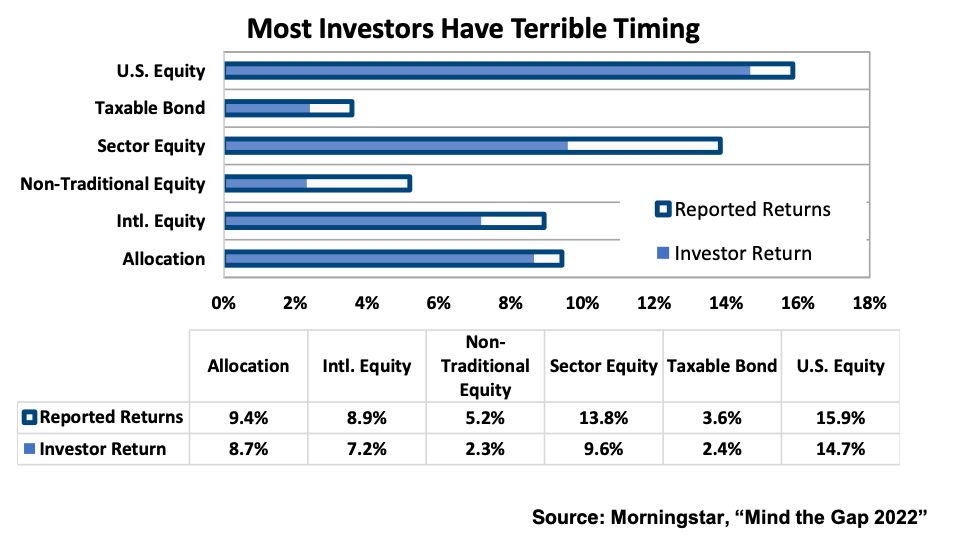
We would argue that investment timing is as important as manager choice, but it does not receive as much consideration. Morningstar publishes an annual “Mind the Gap” study. The study analyzes the difference between investor returns and fund returns. Investor returns represent the actual returns that investors earn in mutual funds and exchange-traded funds based on the timing of their investments, while fund returns represent the returns of the underlying securities held by the funds. The study consistently finds that investor returns are less than reported returns. Investors tend to buy and sell funds at the wrong times, often buying when past performance is strong and selling when past performance is weak. For the 10-year trailing period ending 12/31/2021, the average investor underperformed the stated return of mutual funds by 1.7% annually, which was about one-sixth of the total return available.
The Mind the Gap study and other similar studies strongly imply that natural human intuition works against investment success. For example, Fear of Missing Out (FOMO) has always existed, but social media has reinforced it. Investing biased by FOMO- performance chasing is more evident in high volatility strategies, such as “sector equity”, where Morningstar found a wider spread between investor and manager returns.
Awareness of the natural tendency to make bad buy and sell decisions is a good first step to improving investment timing. Other strategies, such as avoiding higher volatility and less diversified funds, systematically rebalancing, and gradually exiting underperforming managers can also help to minimize the negative impact of bad timing.
Finally, risk assets tend to go down in price when people need to raise cash. It is easy to see how this can lead to investors underperforming as they sell assets at an inopportune time. Having sufficient cash resources and a well constructed asset allocation can help minimize the need to sell into a bear market and greatly reduce the negative timing alpha.